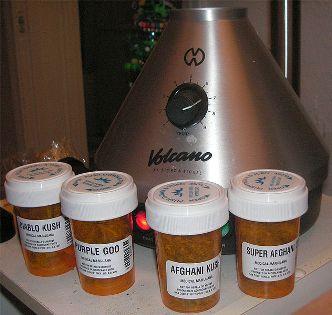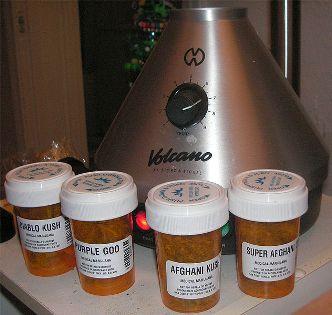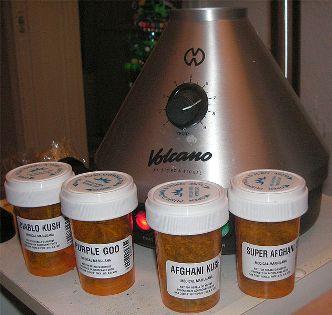State Courts
Montana Approves Medical Marijuana Initiative Petition

No Job Protection for WA Medical Marijuana Patients, Court Rules

RI Judge Rules Medical Marijuana Growers Can Have Guns
Medical Marijuana Advocates Threaten to Sue If San Diego Fails to Amend Flawed Ordinance (Press Release)
For Immediate Release: April 28, 2011
Medical Marijuana Advocates Threaten to Sue if San Diego Fails to Amend Flawed Ordinance
New law shuts down more than 100 operating facilities & leaves virtually no options for relocation
San Diego, CA -- Medical marijuana advocacy group Americans for Safe Access (ASA) threatened to file suit against the City of San Diego today if it doesn't amend a recent ordinance that patient advocates are calling a de facto ban on local distribution facilities. ASA argued in a letter sent to City Attorney Jan Goldsmith that the ordinance violates due process rights of medical marijuana collectives and cooperatives by forcing them to shut down in 30 days, leaving virtually no options for relocation.
Unless the city can "ease the restrictions on medical marijuana collectives, so that qualified patients can obtain the medicine they need," the letter authored by ASA Chief Counsel Joe Elford said that the organization and its patient base would be compelled to seek such remedies in court. The letter suggested that the San Diego City Council amend its ordinance to allow "medical marijuana collectives to operate in most commercial and all industrial zones" and increase "the period to obtain a conditional use permit to one year."
The city council passed its ordinance on April 12th after months of feedback from hundreds of patients and experts. Virtually all of the requests for changes, including many from its own city-commissioned medical marijuana task force, were ignored. Advocates launched one of the largest letter-writing campaigns in the city's history, resulting in thousands of letters being sent to city council members and the mayor. The ordinance recently became law without the signature of Mayor Jerry Sanders.
San Diego has a long history of hostility toward medical marijuana. In 2006, the county sued the state over having to implement the ID Card program, mandatory under the Medical Marijuana Program Act passed in 2003. The county, which took the case all the way to the U.S. Supreme Court and lost, now provides ID cards to thousands of qualified patients. Each year since 2005, San Diego medical marijuana providers have endured numerous aggressive federal raids carried out in conjunction with local law enforcement.
After a series of DEA-led raids in September 2009, one month prior to the now-famous Justice Department memo, District Attorney Bonnie Dumanis prosecuted two patients, both of whom were acquitted by juries. One of those patients, Jovan Jackson, was tried a second time and convicted as a result of being denied a medical defense. ASA, which argued against the denial of Jackson's defense at trial, is currently appealing his conviction.
Further information:
ASA threatens to sue City of San Diego: http://AmericansForSafeAccess.org/downloads/San_Diego_Demand_Letter.pdf
San Diego medical marijuana ordinance: http://AmericansForSafeAccess.org/downloads/City_of_San_Diego_Ordinance.pdf
Attorney General Paula Dow Wrong to Seek Federal Advice on Medical Marijuana (Press Release)
FOR IMMEDIATE RELEASE: April 21, 2011
CONTACT: Ken Wolski at (609) 394-2137
Attorney General Paula Dow Wrong to Seek Federal Advice on Medical Marijuana
WHO: Attorney General Paula Dow
WHAT: Asked federal officials their plans to punish NJ’s Medicinal Marijuana Program participants
WHEN: April 19, 2011
WHERE: Trenton, NJ
WHY: The federal government insists marijuana has no accepted medical uses in the U.S.
Attorney General Paula Dow sent letters to federal officials on April 19th asking them if they intend to punish anyone associated with New Jersey’s Medicinal Marijuana Program. The attorney general even suggested ways that New Jerseyans might be punished—“civil suit or criminal prosecution,” the letters said.
A more appropriate approach would have been for the attorney general to tell the federal officials that if they dare to interfere with New Jersey’s medical marijuana program, she will sue them and fight them all the way to the Supreme Court, where she will win. The U.S. Supreme Court has already acknowledged (in the Garden Grove decision) that states have the right to determine the proper practice of medicine within each state. In the Garden Grove case the U.S. Supreme Court let stand a lower court’s decision that said: "Congress enacted the Controlled Substances Act to combat recreational drug abuse and curb drug trafficking. Its goal was not to regulate the practice of medicine, a task that falls within the traditional powers of the states.”
Ken Wolski, executive director of CMMNJ said, “There can be no doubt that every aspect of New Jersey’s medical marijuana program concerns access to physician-recommended medicine by desperately ill patients. The 110 pages of regulations promulgated by the New Jersey Department of Health and Senior Services to enact the Medicinal Marijuana Program is a monument to overly-cautious bureaucratic detail. No one could possibly confuse it with drug abuse and drug trafficking. The attorney general should instead be insisting that the federal government reschedule marijuana from its absurd Schedule I status.”
Schedule I drugs have no accepted medical uses in the U.S. New Jersey—along with 14 other states and the District of Columbia—acknowledged medical uses for marijuana through legislation. Another dozen states are considering similar legislation. “It is the federal government that is wrong in this, not New Jersey. State officials should not look to the feds for guidance on medical marijuana,” Wolski added.
Ken Wolski, RN, MPA, Executive Director, Coalition for Medical Marijuana--New Jersey, Inc.
219 Woodside Ave., Trenton, NJ 08618
609.394.2137 www.cmmnj.org [email protected]
Two Lawsuits Challenge Los Angeles' Lottery Plan for Medical Marijuana Dispensaries
FL Supreme Court Justices Throw Out Evidence Found by Drug Dog
Odor of Marijuana Not Enough to Order Suspect Out of Car Says Massachusetts' Highest Court
Medical Marijuana Users Fight for Gun Rights
Pagination
- First page
- Previous page
- …
- 48
- 49
- 50
- 51
- 52
- …
- Next page
- Last page

